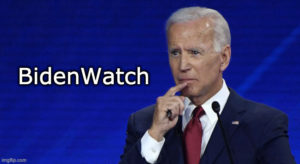Colin Powell, Secretary of State for George W. Bush, and former Chairman of the Joint Chiefs of Staff for George H. W. Bush, has died at age 84.
Powell, a consummate Washington insider, was fairly effective in both roles. As Secretary of State, he was much better at managing relations with American allies and various international institutions than (in increasing order of general competence) John Kerry, Madeline Albright, Warren Christopher, Rex Tillerson, Hillary Clinton or Al Haig, but not among the very best of the modern era (George Schultz, James Baker and Mike Pompeo), and was notably better than successor Condoleezza Rice. He kept the Blair government onboard for Operation Iraq Freedom (at considerable political cost to Blair), effectively used the temporary post-9/11 period of international goodwill, maintained the sanctions regime on Iran, and effectively represented a President who was not loved by the “international community.”
As Chairman of the Joint Chiefs of Staff during the Gulf War, he effectively managed inter-service relations and empowered General Norman Schwarzkopf to produce the most overwhelmingly impressive military victory by American forces since World War II.
Powell does owe a small measure of blame in that American involvement in Iraq turned out to be a long-running, expensive distraction whose ultimate success was only cemented under the Trump Administration, but that was clearly a bipartisan quagmire, as was the long-running, expensive, disaster in Afghanistan, in which the State Department played a very baleful role.
That he was a squishy Republican who backed Obama in 2008 shouldn’t change the fact that he was fairly adept at at implementing the policies of the Presidential Administrations he worked for, no matter how mistaken some of those policies may appear in hindsight. Powell was almost universally praised for effective and dignified management in successfully filling two different demanding roles.
He once described himself in an interview with the New York Times in 2007 as a “problem-solver.” He offered this analysis of himself: “He was taught as a soldier to solve problems, So he has views, but he’s not an ideologue. He has passion but he’s not a fanatic. He’s first and foremost a problem-solver.”



